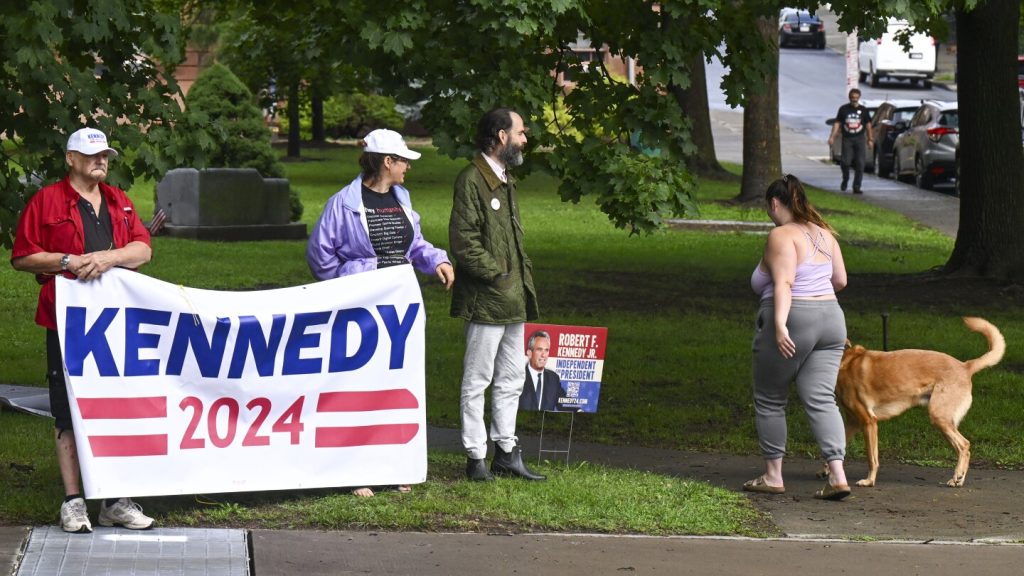In a recent ruling, a state judge in North Carolina denied a request to block the printing of We the People party candidates, including Robert F. Kennedy Jr., on the state’s presidential ballots. The decision came after the State Board of Elections had certified We the People as an official party, allowing Kennedy’s inclusion on the ballots. The North Carolina Democratic Party had challenged the board’s decision, arguing that the party was being used as a way for Kennedy to evade the stricter requirements for independent candidates to get on the ballot. However, the judge found that the certification was granted properly in accordance with state laws.
Additionally, a federal judge ordered the State Board of Elections to recognize another political group, Justice for All, as an official party and to accept its candidates, including progressive activist Cornel West, on the fall ballot. This decision came after the board had rejected the group’s petition for official party status, citing concerns about the validity of the signatures collected. The judge ruled that the board had gone too far in throwing out the entire petition and that the plaintiffs were likely to win a First Amendment claim in court. This ruling can also be appealed.
The dispute over We the People and Justice for All highlights the challenges faced by third-party candidates in gaining access to the ballot in North Carolina. The Democratic Party had raised concerns about the motives behind these new parties and their potential impact on the upcoming election. With concerns about Robert F. Kennedy Jr. potentially peeling off left-wing voters from the Democratic nominee, the outcome of these legal battles could have significant implications for the election.
Both Kennedy and West’s campaigns have been working to secure spots on the ballot in multiple states. Kennedy’s campaign stated that he is officially on the ballot in 17 states, while West’s campaign has gathered enough signatures and party nominations to be included on the ballot in 16 states. These efforts to expand their reach reflect the growing interest in alternative candidates and the desire to offer voters more choices in the upcoming election.
The legal battles surrounding the certification of We the People and Justice for All parties underscore the complexities of the election process and the importance of adhering to state regulations. While third-party candidates face obstacles in gaining access to the ballot, rulings like the ones issued by the state and federal judges demonstrate the need to uphold the principles of democracy and protect voters’ rights. As the election season continues, the outcome of these legal challenges will shape the landscape of the presidential race in North Carolina and beyond.
The decisions by the state and federal judges to allow We the People and Justice for All parties to be included on the ballot highlight the ongoing debates surrounding third-party candidates and their impact on the electoral process. With concerns raised about the motives behind these new parties and their potential to disrupt the election, the rulings represent a balance between ensuring fair access to the ballot and preventing abuse of the system. As the campaigns of Kennedy and West continue to gain momentum, their inclusion on the ballot in multiple states reflects the growing diversity of choices available to voters in the upcoming election.


